#Yusuf Islam
Text



Cat Stevens (later known as Yusuf Islam) photographed by Michael Putland outside Island Records' Basing Street studios in Notting Hill, London, October 29, 1970.
465 notes
·
View notes
Text
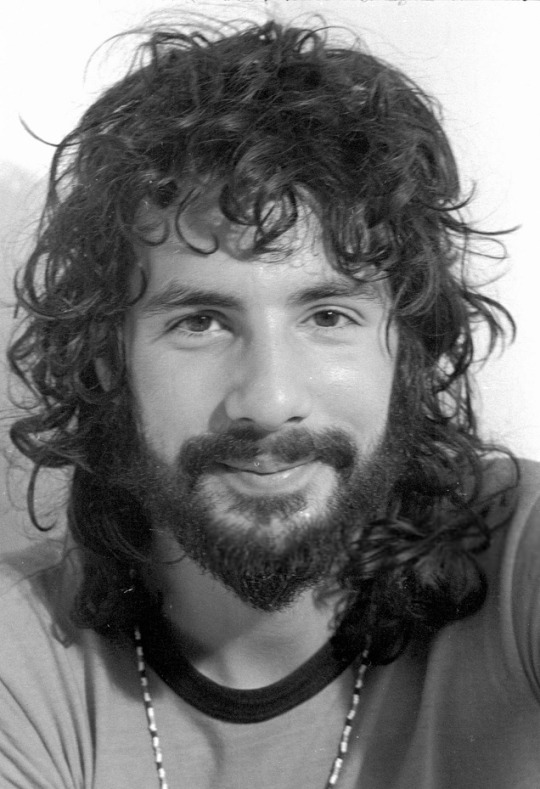
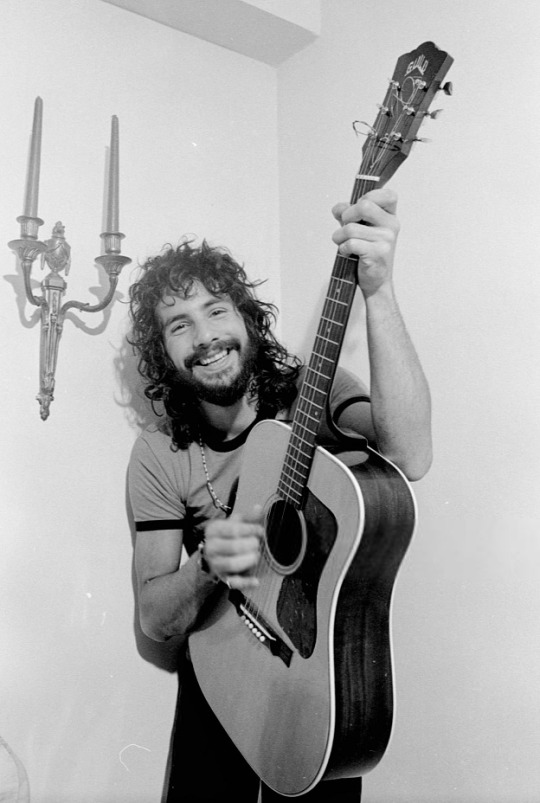
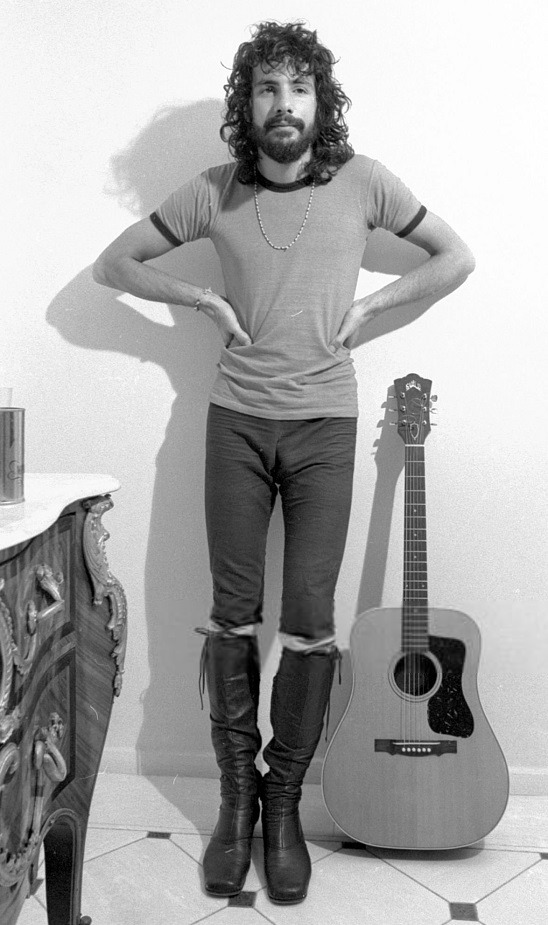
Cat Stevens photographed by Jack Mitchell, 1971.
289 notes
·
View notes
Text
Filistin yanıyor.
Çocuklar ölüyor.
Analar ağlıyor.
Insanlar izliyor.
#gurbet#youtube#yusuf islam#filistin yanıyor#filisinli çocuklar#katil israil#çocuk katili israil#viçdansızlar#no war#kein krieg
57 notes
·
View notes
Text


Cat Stevens/Yusuf Islam (1948-) solo
Songs: "Father and Son," "Peace Train"
Defeated Opponents: Johnny Thunders, Neil Diamond, Ray Manzarek
Propaganda: none
Bruce Springsteen (1949-) solo; leader of the E Street Band
Songs: "Born to Run," "Blinded by the Light"
Defeated Opponents: Lindsey Buckingham, Rick Danko, Otis Redding
Propaganda: "Nobody has ever looked hotter than the Boss in the video for 'Dancing in the Dark' except maybe Bruce in the video for 'I'm On Fire'"
"Bruce from the 70's to HIS 70's...enough said"
"BRUUUUUCE! (Yes, I am from New Jersey.) But really 70s-Stone Pony-Asbury Park Springsteen is truly a sight to behold."
Visual Propaganda for Bruce Springsteen:
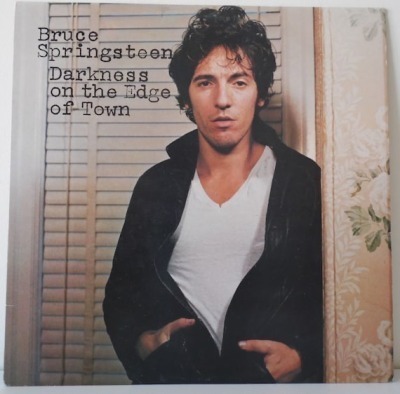

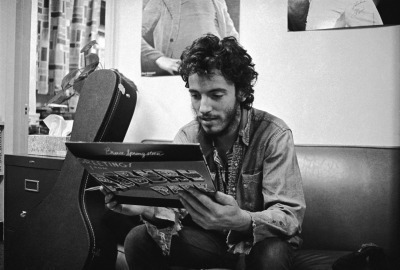
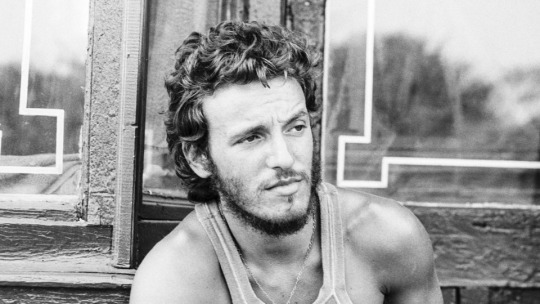

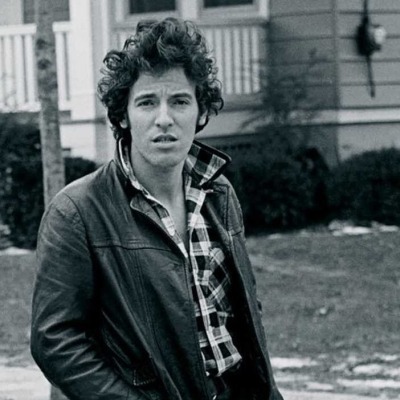
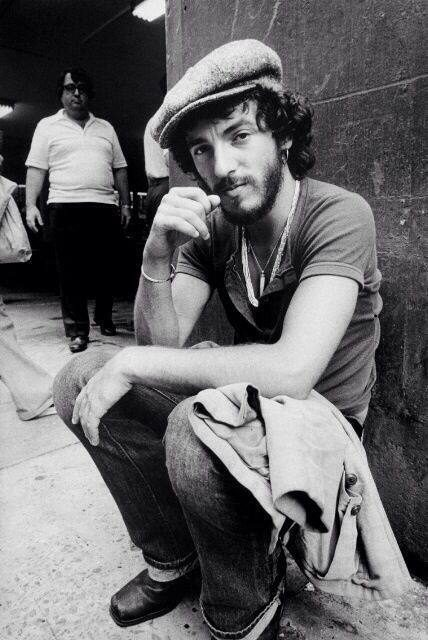
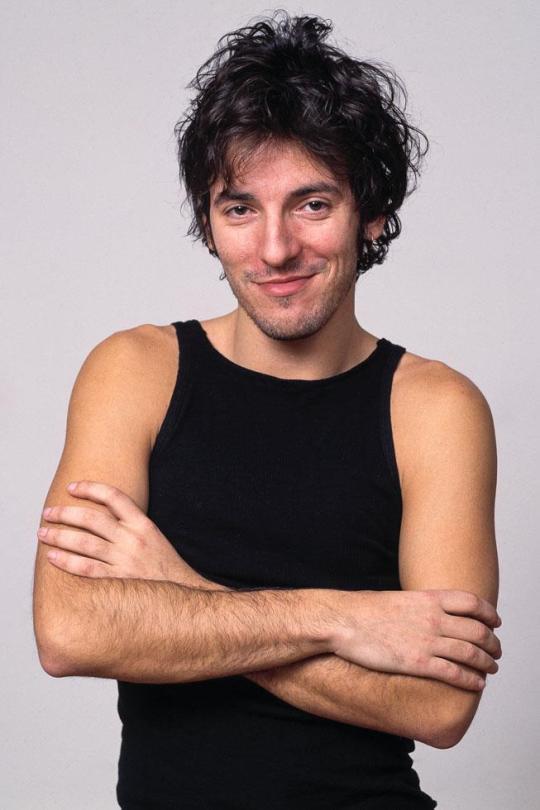

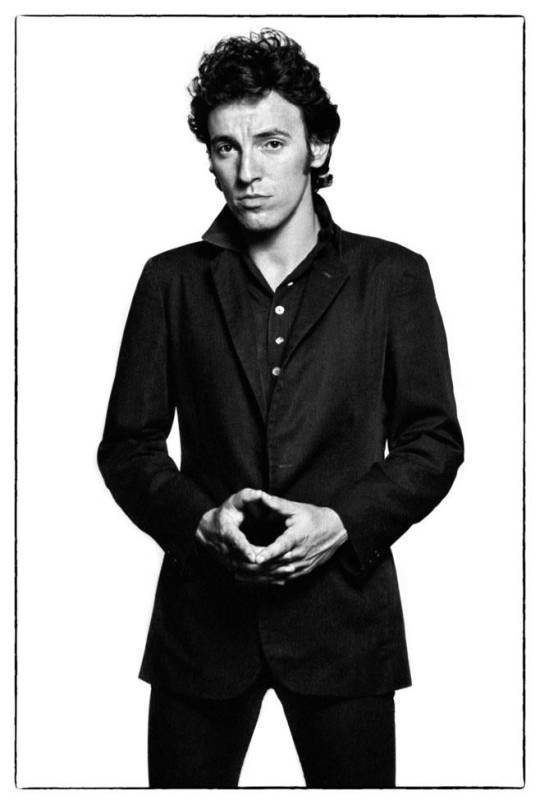

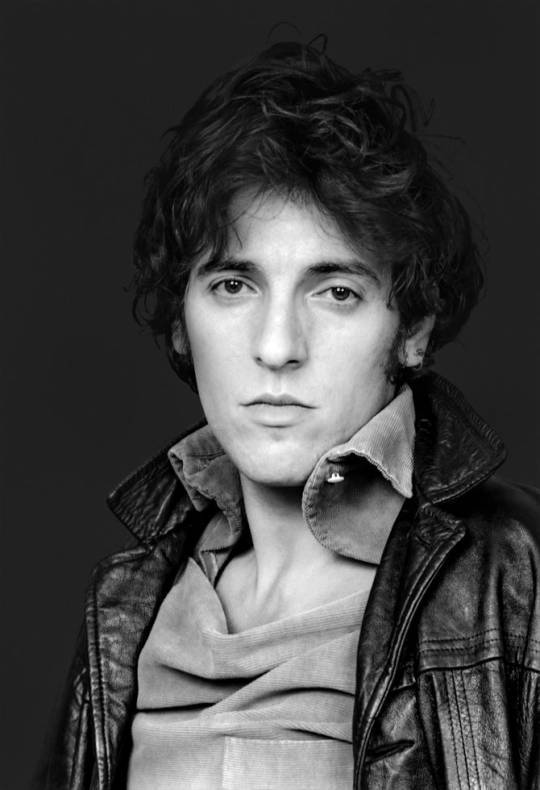




32 notes
·
View notes
Text
By: Andrew Doyle
Published: Feb 13, 2024
In his novel Shalimar the Clown, Salman Rushdie traces the deterioration of Kashmir from a place where Muslims and Hindus could live together in peace and co-operation to a country ravaged by conflict. This descent is signalled early in the novel with the arrival of a character called the Iron Mullah, a blood-and-thunder preacher with “skin the colour of rusting metal”. We think his name is metaphorical, but the Iron Mullah had risen from the scrapheaps of the Indian army, the junkyards of weaponry and tanks that have been left to decay. When he arrives, he removes his turban and raps his knuckles against his own head so that the locals can hear the metallic clang. It’s Rushdie’s way of portraying the idea that it was the actions of the Indian army that gave rise to the appeal of Islamic extremism in Kashmir.
Soon after the appearance of the Iron Mullah, a local Muslim man challenges him.
“Be off with you. We don’t want any trouble, and you, standing here in the middle of our little town and yelling your head off about the punishments of hell – you look like trouble to me.” “There are big infidels,” replied the stranger calmly, “who deny God and his Prophet; and then there are little infidels like you, in whose belly the heat of faith has long since cooled, who mistake tolerance for virtue and harmony for peace.”
For the likes of the Iron Mullah, moderate peaceful Islam is just another form of heresy. He soon has a mosque built in which he preaches from a pulpit made of scrap metal, old bits of radiator and “bent fenders spearing upwards like horns”. He is a frightening and ridiculous figure, but everyone is too intimidated to laugh.
Religious intolerance is something that Rushdie has had to live with for most of his life. Whereas extremists cannot reason and therefore resort to violence, Rushdie’s power has always been in his words. He is one of the handful of living authors whose work I genuinely adore, and Shalimar the Clown is undoubtedly my favourite. His depiction of Kashmir’s degeneration from an ecumenical paradise to a sectarian warzone is heartrending. It was published in 2006, seventeen years after the fatwa issued by the Ayatollah Khomeini of Iran following the publication of Rushdie’s novel The Satanic Verses, and surely the Iron Mullah was inspired by these experiences.
That evil spectre of the Iron Mullah was resurrected in August 2022, when an Islamist fanatic attempted to murder Rushdie at an event in New York, leaving him struggling for his life in hospital with multiple stab wounds. And although there was widespread condemnation, the silence from the Royal Society of Literature was curious to say the least. This week, fellows of the RSL have come forward to criticise the charity’s leadership for not being forthcoming on condemning this atrocity. The RSL’s former president, Dame Marina Warner, has said its leadership refused to issue a statement in support of Rushdie’s right to free expression because to do so “might give offence”. Do knife-wielding maniacs really deserve all that much consideration?
The RSL’s current thinking on the subject was outlined in a piece for the Guardian by its president, Bernardine Evaristo:
“Finally, to the matter of “freedom of speech”. There’s no question that the current leadership believe in this. However, the society has a remit to be a voice for literature, not to present itself as “the voice” of its 700 fellows, surely a dangerous and untenable concept. It cannot take sides in writers’ controversies and issues, but must remain impartial.”
The best response came from Rushdie himself. “Just wondering if the Royal Society of Literature is ‘impartial’ about attempted murder? (Asking for a friend.)”
Apparently, remaining “impartial” means not issuing statements of support for authors when there are attempts to cancel them both figuratively and literally. When activists hounded the poet Kate Clanchy with spurious allegations of racism and ableism in her award-winning book Some Kids I Taught and What They Taught Me, the RSL were mute. “They would not make a stand about the attacks on Clanchy,” said Warner, or any kind of defence “for all writers facing these social media attacks”.
In recent years, we have seen attempts by activists of many stripes to conflate language and violence, to claim that offensive words can cause the equivalent of physical harm. By this kind of twisted logic, bloody repercussions against authors and artists can be deemed a form of self-defence. A survey of American students in 2017 found that 30 per cent of respondents agreed with the statement: “If someone is using hate speech or making racially charged comments, physical violence can be justified to prevent this person from espousing their hateful views”. In this regard, today’s identity-obsessed self-proclaimed “social justice activists” have something in common with the mullahs of Tiran.
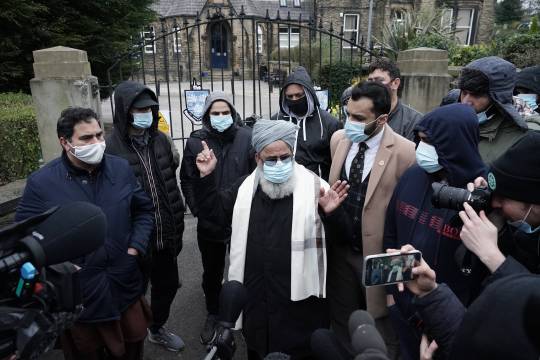
[ Protesters gather outside of the Batley Grammar School in West Yorkshire ]
Consider what happened to the schoolteacher at the Batley Grammar School in West Yorkshire who, in March 2021, was suspended for displaying a caricature of the Prophet Muhammad during a lesson on free speech. The protesters that gathered outside of the school couched their objections in terms of “safety and well-being”. One read aloud a statement in which the school authorities were accused of failing in their “duty of safeguarding”, and the teacher himself was charged with “threatening and provocative” behaviour. Here we saw a sinister alliance of religious fundamentalism and “safetyism” (a term coined by journalist Pamela Paresky to denote the elevation of emotional “safety” to a sacred value). The teacher from Batley Grammar is still in hiding to this day; I would suggest that his safety ought to take priority.
When activists say “this person makes me feel unsafe”, they are effectively saying “I don’t agree with this person and I want them to be censored”. Depressingly, this tactic generally works. Event organisers, school authorities, and employers feel obliged to act because they are gulled into believing that this is an issue relating to their legal duty of care. But disagreement and causing offence are not a threat to anyone’s safety, and we need to stop pandering to anyone who claims otherwise.
Of course, the RSL is not responsible for violence against authors, but they could at least offer their vocal support to the principle of artistic freedom. Let’s not forget that there have been many commentators over the years who have tacitly blamed Rushdie for writing his book in the first place. I recall one of teachers at school making the case that Rushdie “should have known better”. How exactly? The Satanic Verses is a brilliant and thoughtful work of fiction, and I daresay my teacher hadn’t even read it.
At the time of the fatwa, there seemed to be endless debates in the media over whether or not Rushdie deserved our sympathy and police protection. A case in point is the singer Yusuf Islam, otherwise known as Cat Stevens, who appeared on the Australian television show Hypotheticals soon after the fatwa was declared. When asked what he would do were he to encounter Rushdie in public, Stevens said that he would inform the Iranian authorities of the author’s whereabouts. As a grim final flourish, he went on to imply that he would rather enjoy the prospect of watching him being burned alive.
In a civilised and free society, it shouldn’t be all that difficult to reach a consensus that violence is not an appropriate form of literary criticism. Or that one of the most important novelists of our time should be entitled to write and say whatever he pleases, just as all of us should be entitled to write and say whatever we please.
I can’t help but think that we, as a society, failed the test of upholding artistic freedom at the time of the fatwa in 1989. We failed again after the massacre at the Charlie Hebdo offices in January 2015. At first, there were widespread declarations of “je suis Charlie”, until the inevitable victim-blaming began. PEN America initially showed much-needed support with a freedom of expression award for the satirical magazine. But then thirty-five writers signed a letter protesting against the decision on the grounds that Charlie Hebdo had mocked a “section of the French population that is already marginalized, embattled and victimized”. This is to misidentify the target. The cartoonists weren’t “punching down” at the Muslim minority. The target was God, and you can’t punch much higher than that.
And if you haven’t read The Satanic Verses, I suggest that you do – not because of the controversy, but because it’s one of Rushdie’s best. It was only a subplot of the book that caused the offence, those sequences based on the founding stories of Islam. The novel is really about the immigrant experience of living in London, but with the author’s characteristic touch of magical realism. It has one of the most audacious openings of a novel I’ve ever read, with the two principal characters – Gibreel and Saladin – falling from the sky from an exploded jumbo jet, dancing and singing deliriously as they tumble towards London. The novel is exhilarating, moving, and frequently funny; I can’t help but notice how many of Rushdie’s critics seem to lack that all-important sense of humour.
Of course, this wasn’t really about people reading a book and being offended by its contents. This was about philistines who hadn’t read the book and who were offended anyway because some Iron Mullah had told them to be. And when it comes to freedom of expression, we all need to be a little braver. We need to remind those who complain about works of fiction that their offence is their own business. They don’t get to decide what other people should or should not read, which cartoons should or should not be drawn, which ideas should or should not be ridiculed or critiqued.
In his memoir Joseph Anton (the pseudonym that Rushdie adopted during his time under police protection), Rushdie includes this letter to a reader:
“Thank you for your kind words about my work. May I make the elementary point that the freedom to write is closely related to the freedom to read, and not have your reading selected, vetted and censored for you by any priesthood or Outraged Community? Since when was a work of art defined by the people who didn’t like it? The value of art lies in the love it engenders, not the hatred. It’s love that makes books last. Please keep reading.”
And that’s exactly what we should do. We need to keep reading, in spite of those Iron Mullahs of the world who would compel us to stop.
#Salman Rushdie#Andrew Doyle#freedom of speech#free speech#freedom to offend#offended#blasphemy#safetyism#blasphemy laws#censorship#islam#this is islam#islamic violence#Cat Stevens#Yusuf Islam#Charlie Hebdo#religion is a mental illness
10 notes
·
View notes
Text

British singer Yusuf Islam, who is a Muslim, was kept on the agenda by the press when he came to Turkey.
A reporter asked him a question about marriage.
Yusuf Islam stunned the reporter with his answer.
A reporter to the British singer;
"What do you think about a man marrying four women in the religion of Islam you have adopted?
I mean, how do you accept the logic of this?
How did you, as a Western intellectual and singer, accept this?"
Yusuf Islam says:
"You say that you know me as I was.
I don't know how many women I was with before I became a Muslim.
I don't know if I had children with them.
You admired me while I was living such a mean life.
Now I have become a Muslim.
I am married to one wife.
"I do not intend to have a second marriage.
If the religion of Islam allows up to four children, it also puts the responsibility of them and their children on them.
There is no such responsibility in the West, which you admire.
Many children do not know their fathers.
The father also leaves this world without seeing his children."
......
Müslüman olan İngiliz şarkıcı Yusuf İslâm, Türkiye'ye geldiğinde basın tarafından epeyce gündemde tutuldu.
Bir muhabir kendisine evlilikle ilgili bir soru sordu.
Yusuf İslam verdiği cevapla, muhabiri şaşkına çevirdi.
İngiliz şarkıcıya bir muhabir;
"Girdiğiniz İslâm dininde bir erkeğin dört kadınla evlenmesine ne diyeceksiniz?
Yani bunun mantığını nasıl kabul edeceksiniz?
Siz bir Batılı aydın bir şarkıcı olarak bunu nasıl kabul ettiniz?"
Yusuf İslam diyor ki:
"Sen, beni eski hâlimle tanıdığını söylüyorsun.
Ben Müslüman olmadan önce kaç kadınla beraber olduğumu bilemem.
Onlardan çocuğum olmuşsa onu da bilemem.
Ben böyle adi bir hayat yaşarken sen bana hayrandın.
Ben şimdi Müslüman oldum.
Tek eşle evliyim.
İkinci bir evliliğe niyetli de değilim.
İslam dini dörde kadar izin veriyorsa onların ve çocuklarının sorumluluğunu da ona yüklüyor.
Senin hayran olduğun batıda böyle bir sorumluluk yok.
Bir çok çocuk babasını bilmez.
Baba da çocuğunu görmeden gider bu dünyadan."
#Yusuf İslam#türkiye#doğa#travel photography#travel destinations#travel#manzara#view#natural#europe#africa#Spotify
28 notes
·
View notes
Text
Earth Day 2024
I have written about this for the past couple of years, and am largely relying on last year’s post as the basis for this one. No apologies for that: the message is still just as necessary and vital. Next Monday, 22 April, is Earth Day. First held in the US on April 22, 1970, it was opened up to the rest of the world in 1990 and now includes a wide range of events coordinated globally by…

View On WordPress
#Cat Stevens#Jackson Browne#music#Queen#Yusuf Islam#David Lindley#Eagles#Earth Day#NASA#Planet Vs. Plastics
2 notes
·
View notes
Text
Not something I’d usually listen to but it was on an Island Records compilation I’m listening to and it sounded so good!
4 notes
·
View notes
Text
Will you carry the words of love with you?
Will you ride the great white bird into heaven?
Yusuf Islam
3 notes
·
View notes
Text
✓
Şu platformda yapılan paylaşımlara bakınca
Aklıma Yusuf İSLAM' ın
Şu sözü geldi.
"Ben Kur-an 'ı okudum Müslüman oldum,
İlk önce Müslümanları tanisaydim
Müslüman olmazdım "
5 notes
·
View notes
Text
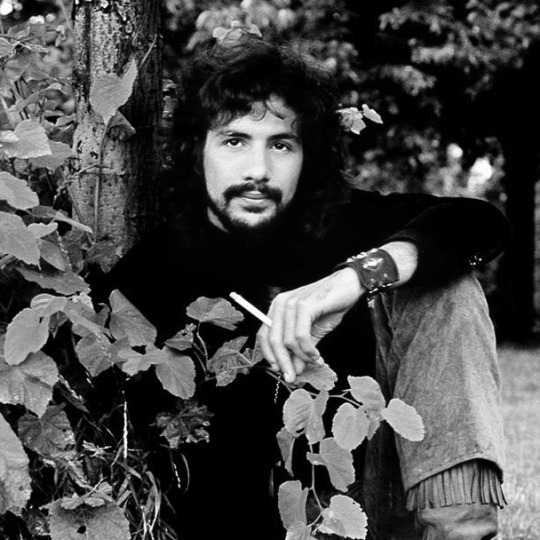

Cat Stevens/Yusuf Islam (1948-) solo
Songs: "Father and Son," "Peace Train"
Defeated Opponents: Johnny Thunders, Neil Diamond
Propaganda: none
Ray Manzarek (1939-2013) The Doors - keyboards
Songs: "Light My Fire," "Riders on the Storm"
Defeated Opponents: Jeff Lynne, Bo Diddley
Propaganda: none
20 notes
·
View notes
Text
youtube
Aging Gracefully
6 notes
·
View notes
Text
youtube
He topado casualmente con este formidable clip de Jimmy Cliff haciendo "Wild World" a ritmo reggae en 1970. Es una de las canciones que Cat escribió tras su ruptura sentimental con Patti D'Arbanville.
Leo que Chris Blackwell, jefazo de Island Records, definió "Tea For The Tillerman", el LP donde iba incluido el original del Gato, como "el mejor álbum que lanzamos jamás".
En 1987 el siempre polémico Jonathan King acusó a Pet Shop Boys de birlarle la melodía a Cat, por entonces ya Yusuf, en su famoso hit "It´s a Sin". King hasta hizo una versión para demostrar el parecido, que es verdad que existe, pero le salió mal: el tecno dúo le denunció y ganó el juicio.
3 notes
·
View notes
Text
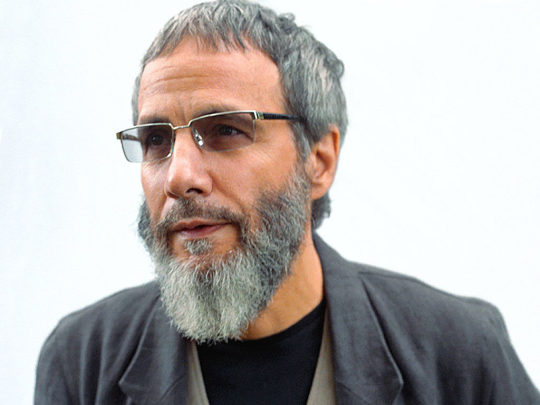

december 23,
1977
Cat Stevens converts to Islam and changes his name to Yusuf Islam.
8 notes
·
View notes

